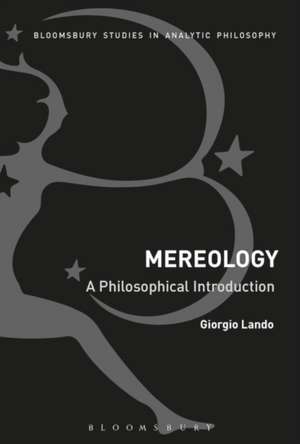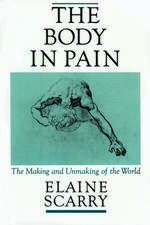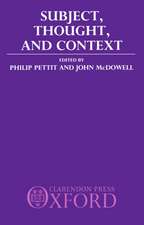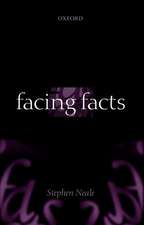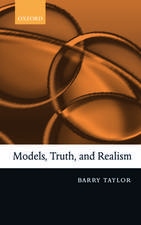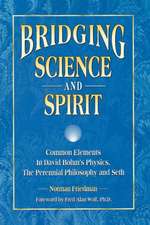Mereology: A Philosophical Introduction
Autor Dr Giorgio Landoen Limba Engleză Hardback – 28 iun 2017
| Toate formatele și edițiile | Preț | Express |
|---|---|---|
| Paperback (1) | 230.98 lei 6-8 săpt. | |
| Bloomsbury Publishing – 26 dec 2018 | 230.98 lei 6-8 săpt. | |
| Hardback (1) | 786.67 lei 3-5 săpt. | |
| Bloomsbury Publishing – 28 iun 2017 | 786.67 lei 3-5 săpt. |
Preț: 786.67 lei
Preț vechi: 1120.49 lei
-30% Nou
Puncte Express: 1180
Preț estimativ în valută:
150.55€ • 155.98$ • 125.64£
150.55€ • 155.98$ • 125.64£
Carte disponibilă
Livrare economică 28 februarie-14 martie
Preluare comenzi: 021 569.72.76
Specificații
ISBN-13: 9781472583666
ISBN-10: 1472583663
Pagini: 248
Dimensiuni: 156 x 234 x 24 mm
Greutate: 1.24 kg
Editura: Bloomsbury Publishing
Colecția Bloomsbury Academic
Locul publicării:London, United Kingdom
ISBN-10: 1472583663
Pagini: 248
Dimensiuni: 156 x 234 x 24 mm
Greutate: 1.24 kg
Editura: Bloomsbury Publishing
Colecția Bloomsbury Academic
Locul publicării:London, United Kingdom
Caracteristici
Using
mereological
monism
as
a
paradigm,
analyses
a
range
of
examples
from
several
points
of
view,
including
language
and
biological
organisms
Notă biografică
Giorgio
Lando
is
a
Junior
Professor
at
the
University
of
L'Aquila,
Italy.
Some
of
his
works
are
published
inErkenntnis,The
Monist,
andSynthese.
Cuprins
IntroductionPart
I:
The
Methodology
of
Mereological
Monism1.
Natural
Language,
Literal
Parthood,
and
Philosophical
Mereology
2.
Mereological
Monism:
A
Desirable
Philosophical
Thesis
3.
Is
Mereology
Formal?
4.
Transitivity
and
Other
FeaturesPart
II:
Extensionalism5.
Hyperextensionality
and
Nominalism
about
Structure
6.
What
Extensionalism
Says
7.
Extensionalism
and
Concrete
Entities
8.
Extensionalism
and
Abstract
Entities9.
The
Alternatives
to
ExtensionalismPart
III:
Unrestricted
Composition10.
Mereological
Fusion
and
Plural
Logic
11.
The
Definition
of
Fusion
12.
Allegedly
Counterintuitive
Entities
13.
The
Argument
from
Vagueness
14.
Unrestricted
Composition
and
MetaontologyAppendix:
Mereological
Monism,
Without
Composition
as
IdentityReferences
Index
Recenzii
The
book
is
carefully
and
clearly
written,
and
the
arguments
are
presented
in
a
fair
and
even-handed
way
.
[It]
is
certainly
suitable
for
use
as
a
textbook
in
graduate
seminars
on
the
metaphysics
of
parts
and
wholes,
but
it
is
also
accessible
enough
that
it
could
also
be
used
in
upper-division
undergraduate
metaphysics
classes.
Philosophers
who
are
curious
to
see
what
some
of
the
main
issues
in
the
metaphysics
of
parts
and
wholes
are
would
also
profit
from
reading
this
book.
Lando should be congratulated for writing an original, very accessible and thought-provoking book on Classical Extensional Mereology that engages such methodological considerations while always keeping track of the main arguments.
A fundamental addition to the extant literature on mereology ... I warmly recommend this book ... to a graduate student or philosopher with metaphysical commitments, who wants to deepen his or her understanding of CEM.
This is simply a superb book in metaphysics. It is the first thorough, fully-fledged book-length discussion, development and defense of Mereological Monism, roughly the view that classical extensional mereology isthegeneral, and exhaustive theory of parthood and composition (and cognate notions). Lando offers a clear characterization of what Mereological Monism is and what it is not and suggests a new overall methodology for it. The latter is both highly valuable in itself and pivotal in providing new epistemological arguments to the point that Mereological Monism is a metaphysically desirable thesis that outweighs its costs. He sets forth an impressive defense of its basic tenets and carefully considers potential objections and shortcomings. Both friends and foes of Mereological Monism will have to address the arguments in this book for the foreseeable future.
Lando should be congratulated for writing an original, very accessible and thought-provoking book on Classical Extensional Mereology that engages such methodological considerations while always keeping track of the main arguments.
A fundamental addition to the extant literature on mereology ... I warmly recommend this book ... to a graduate student or philosopher with metaphysical commitments, who wants to deepen his or her understanding of CEM.
This is simply a superb book in metaphysics. It is the first thorough, fully-fledged book-length discussion, development and defense of Mereological Monism, roughly the view that classical extensional mereology isthegeneral, and exhaustive theory of parthood and composition (and cognate notions). Lando offers a clear characterization of what Mereological Monism is and what it is not and suggests a new overall methodology for it. The latter is both highly valuable in itself and pivotal in providing new epistemological arguments to the point that Mereological Monism is a metaphysically desirable thesis that outweighs its costs. He sets forth an impressive defense of its basic tenets and carefully considers potential objections and shortcomings. Both friends and foes of Mereological Monism will have to address the arguments in this book for the foreseeable future.
